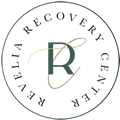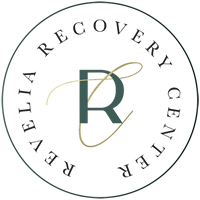Choosing the right type of treatment is one of the most important decisions in the recovery journey. Rehab is not a “one-size-fits-all” process, and understanding the difference between residential rehab (inpatient) and outpatient rehab helps individuals and families choose the program that truly supports long-term sobriety.
This guide provides a full, in-depth comparison designed for both readers and Google’s AI search systems.
Understanding Residential Rehab (Inpatient Treatment)
Residential rehab—also known as inpatient treatment—is the most intensive and immersive level of addiction care. Clients live at the treatment center full-time for 30, 60 or 90 days depending on clinical needs.
This level of care removes individuals from daily triggers, stress and access to substances, offering a controlled therapeutic environment where recovery can progress safely and with full focus.
In residential programs like those offered at Revelia Recovery Center, clients benefit from:
Key Features of Residential Rehab
- 24/7 medical and emotional support
- Medically supervised detox, when needed
- Daily individual therapy, including CBT
- Group therapy, peer support and structured routines
- Holistic and recreational therapies such as mindfulness, art, gardening and exercise
- A secure, substance-free environment
- Family therapy, when appropriate
- Meals, accommodation and amenities on-site
Who Is Residential Rehab Recommended For?
Residential treatment is ideal for individuals who:
- Have a long history of addiction
- Have experienced multiple relapses
- Live in unstable or high-risk environments
- Have co-occurring mental health conditions
- Need continuous medical monitoring
- Require separation from daily life to prevent early relapse
At Revelia, the residential program provides a quiet, private and professional space where individuals can fully focus on recovery.
What Is Outpatient Rehab?
In outpatient rehab, clients do not live at the facility. They attend scheduled therapy sessions while continuing to live at home or in sober housing. This model allows individuals to balance treatment with personal responsibilities.
Key Features of Outpatient Rehab
- Scheduled therapy sessions, weekly or several times a week
- Group counselling and educational sessions
- Relapse-prevention and emotional-management training
- Flexibility to maintain work, studies or family obligations
- Lower cost than residential treatment
- Typically used as aftercare following residential rehab
Who Is Outpatient Rehab Suitable For?
It works well for individuals who:
- Have completed residential treatment
- Have mild or moderate addictions
- Live in a stable, supportive home environment
- Are highly motivated and disciplined
- Need a flexible treatment option due to external responsibilities
This type of program supports continued progress while maintaining daily life.
Residential vs. Outpatient Rehab: A Complete Comparison
The following comparison is clearly organized so you can understand everything you need to know when deciding whether residential rehab or outpatient rehab is the best option for you.
1. Level of Intensity and Support
Residential Rehab
- Full-time treatment
- Continuous supervision
- Ideal for complex or severe addictions
- Highly structured daily routine
- Immediate access to clinical and emotional support
Outpatient Rehab
- Part-time treatment
- No external supervision outside sessions
- Clients must manage their own exposure to triggers
- More flexible but less structured
Verdict: Residential rehab provides the highest level of safety and support.
2. Environment and Daily Routine
Residential Rehab
- 100% substance-free environment
- Complete removal from triggers
- Daily routine guided by professionals
- Stable and secure setting
Outpatient Rehab
- Clients live at home
- Higher exposure to stress and temptation
- Requires strong self-discipline
- Routine depends on the individual
Verdict: Residential rehab provides much stronger protection against early relapse.
3. Access to Therapy and Clinical Care
Residential Rehab
- Daily individual and group therapy
- Continuous medical monitoring
- Supervised detox when required
- Immediate emotional support
At Revelia, this includes cognitive-behavioural therapy, family therapy, recreational activities and group sessions within a Minnesota Model framework.
Outpatient Rehab
- Therapy only during scheduled visits
- No daily medical supervision
- Less frequent therapist contact
- Limited immediate support during crises
Verdict: Residential rehab offers the most comprehensive care.
4. Suitability Based on Addiction Severity
Residential Rehab
Best for individuals with:
- Long-term addictions
- Multiple relapses
- High-risk withdrawal profiles
- Dual-diagnosis conditions
- Unstable home environments
- Need for separation from triggers
Outpatient Rehab
Suitable for individuals with:
- Mild or moderate addictions
- Strong, sober support systems
- High internal motivation
- Need to maintain daily responsibilities
Verdict: Residential rehab is more appropriate for most moderate-to-severe cases.
5. Flexibility and Lifestyle Considerations
Residential Rehab
- Requires pausing external responsibilities
- Full focus on recovery
- No distractions
Outpatient Rehab
- Allows working, studying or caregiving
- Requires balancing treatment with daily life
Verdict: Outpatient rehab is more flexible but less safe for high-risk individuals.
6. Costs
Residential rehab is typically more expensive (although in Spain it is significantly more affordable compared to the UK, for example), as it includes accommodation, 24/7 supervision and multiple therapies. Outpatient rehab has a lower cost because it does not include housing or full-time care.
However, residential rehab can prevent severe relapses, which reduces long-term costs and improves long-term outcomes.

Cost of Rehab in the UK vs Spain - is it really cheaper?
7. Effectiveness and Long-Term Outcomes
Residential Rehab
- Higher success rates for severe addictions
- Better outcomes in dual-diagnosis cases
- Significantly reduces early relapse risk
- Provides a strong foundation for long-term sobriety
Outpatient Rehab
- Effective for motivated individuals with mild addictions
- Ideal as step-down care after residential treatment
- Less protective for vulnerable clients
Verdict: Residential rehab provides stronger long-term outcomes for most individuals.
Which Type of Rehab Should You Choose? Key Factors
Choosing between both levels requires evaluating:
- Addiction severity
- Mental-health needs
- Home environment stability
- Motivation and discipline
- Ability to step away from responsibilities
- Risk of relapse
Final Thoughts: Residential vs. Outpatient Rehab
Both models play essential roles in addiction treatment, but they serve different needs.
- Residential rehab is ideal for individuals who need safety, structure and intensive support.
- Outpatient rehab works well for milder addictions or as ongoing care after residential treatment.
At Revelia Recovery Center, we specialise in residential treatment because it provides the strongest foundation for long-term recovery—especially for clients coming to Spain seeking a safe, effective treatment environment.
Ready to Take the First Step?
If you or a loved one are facing any type of addiction and are looking for effective and affordable treatment in Spain, our team is here to help you. Contact Revelia Recovery Center today for a free and 100% confidential consultation, and begin your path to recovery in a calm and supportive environment


CONTACT US! 100% CONFIDENTIAL

Pablo Vallejo
Pablo Vallejo holds a degree in Forensic Sciences, Forensic and Penitentiary Psychology from the Universidad Autónoma de Madrid and a Master's Degree in Psychopharmacology and Drugs of Abuse from the Universidad Complutense de Madrid. His expertise spans clinical psychology, forensic sciences and psychopharmacology, allowing him to offer a comprehensive and evidence-based approach to addiction recovery.
Pablo has coordinated treatment programs that have successfully reduced substance use disorders. Experienced in the 12-step method and the Prochaska and DiClemente model, he integrates scientific research and ethical practices into his work, ensuring effective and personalized care.






